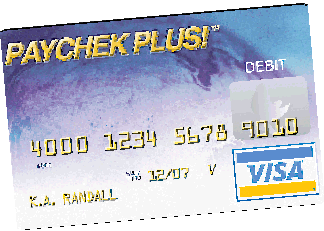 |
Number of temporary workers not needed: 159. Number of carbon-copy applications processed: zero. Allowing New York City youth to apply for a summer job online and get paid in plastic: priceless.
Maybe not quite priceless. But after instituting several technical innovations – including paying kids through a Visa debit card and managing programs with online tools – the New York City Department of Youth and Community Development’s Summer Youth Employment Program (SYEP) is spending less each year on administrative tasks. As a result, it is devoting more money to employer and youth outreach, while keeping pace with a minimum wage that has increased from $5.15 an hour in 2005 to $7.15 an hour this year, city officials said last month.
More and more urban summer jobs programs are using technology to solve problems and save money. Memphis, Tenn., instituted a bankcard payment program last year; Washington, D.C., is implementing a debit card system this summer.
Such innovations are among the few bits of good news on the summer jobs front. The National League of Cities says the depressed economy is forcing city officials to scrounge more than usual to find job slots for teens. Northeastern University’s Center for Labor Market Studies predicts the teen summer employment rate will reach 34.2 percent.
Trust
Under the New York system, funds are loaded onto the youths’ accounts at every two-week payroll period. Youths can check their balances at no charge.
Some might wonder: Can most teens be trusted to use a Visa card responsibly?
Yes, said Dan Symon, former New York City SYEP director and now the agency’s chief contracting officer. Other than “little silly stuff” – a youth seeing if he might be able to withdraw a million dollars from an ATM machine, for instance – there have been almost “no issues” since the Visa debit card wage-payment system began in 2005, Symon said.
Symon and his successor, Alan Cheng, advised other jurisdictions thinking of going to such a system to incorporate a financial literacy component and encourage the summer workers to open bank accounts, as New York does.
Indeed, cities are stressing that such systems benefit youths as well as governments. “We hope that the real-life experience gained by using payroll debit cards to budget and purchase items will be a practical tool when these students become responsible for their own finances,” Natwar Gandhi, Washington’s chief financial officer, said in a statement.
Other Innovations
New York is a pioneer in using technology to improve summer youth programming. After adopting the Visa card program in 2005, it instituted other innovations, including a Web-based job application system that gives youths 24-hour access to their application status. Once enrolled in the program, they can go online to report work hours, print out pay stubs and generate W-2 tax forms.
Symon said using the debit cards has also saved the city the cost of scheduling, staffing and providing police protection for pay sites that had to be set up around the city every two weeks during the summer. Youths without bank accounts also avoid having to turn to pricey check-cashing stores to get their biweekly payments.
This year, three banks – Citibank, Commerce and HSBC – have waived fees for use of the cards.
Other cities are following suit. Lasana K. Mack, deputy chief financial officer and treasurer with Washington’s Office of Finance and Treasury, said officials “brainstormed” about improving their payment system after experiencing “significant problems” with electronic benefit transfer (EBT) cards used in previous years. EBTs often are not accepted at ATMs, can get damaged and are costly for the city.
Washington will save $145,000 this year by adopting Visa cards for payments because, unlike EBTs, the city is not charged to use them; merchants pay Visa directly.
Washington’s Visa cards, provided by JPMorgan Chase, are accepted without fees at any ATM on the Allpoint network, Mack said. JPMorgan Chase also created a financial literacy DVD that youths viewed during their orientation to the summer program, he said.
The Benefits
New York officials say the technical innovations have led to overall improvements in the program.
The online application system drastically cuts down on the amount of data entry required of the 56 SYEP contractors, which are community-based organizations that recruit and monitor youth and reach out to employers. The online innovations and stepped-up youth outreach also led to an increase of about 10,000 applications, Cheng said.
Youths can still submit paper applications, which are available at schools, libraries and other sites. About 65 percent of the applications this year arrived electronically, an increase from last year’s rate of 50 percent, according to SYEP data.
Another payoff: The city reduced from 212 to 53 the number of temporary workers needed each summer to administer the program, mostly by pushing paper. To put “that salary back into summer jobs for young people,” said Cheng, meant “the exchange was greater on the side of young people having more opportunity.”
Officials said they’ve expanded the number of summer work sites from 3,500 in 2005 to more than 6,500 projected for this year. The move away from a paper-laden system has freed SYEP agencies to spend time searching for private-sector employment, which provides youth with more real-world work experiences, Cheng said. SYEP estimated that the availability of such positions rose by 24 percent in 2007 from 2004.
Contact: New York SYEP (212) 442-5900, http://https://www.nycsyep.com; Washington Office of the Chief Financial Officer (202) 727-2476, http://www.cfo.dc.gov/cfo/site/default.asp.
























